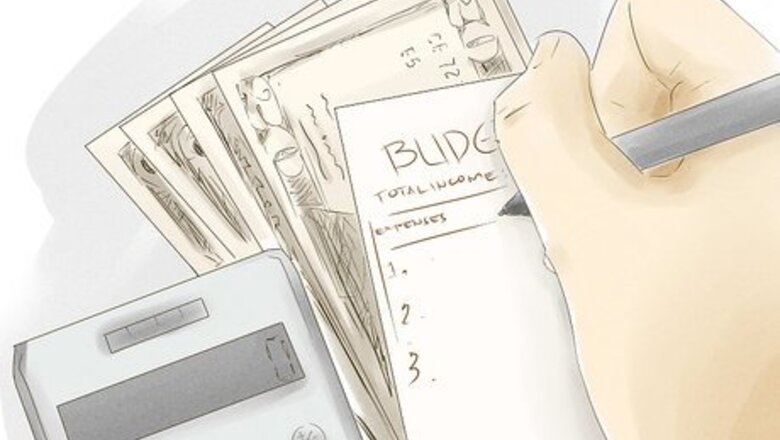
views
Making Practical Considerations

Assess your budget. Some hobbies are more expensive than others. Before choosing a hobby, think about your budget. What can you reasonably afford? Some hobbies require a lot of equipment. If you want to take up a sport like, say, hockey, you will need protective gear, a stick, ice skates, and so on. This can get expensive fast, but if you have the money and are truly interested it may be worth it. If you're on a budget, look for a hobby that's low cost. Something like knitting, for example, only requires basic supplies like needles, yarn, and some scissors. While you'll have to put some money towards this hobby, you can find many of these supplies for a lower cost online, at a department store, or a craft store. Even if a hobby does require equipment, start off with the cheap stuff. Don’t buy a $10,000 guitar if you’re just barely learning to play. It’s okay to spend something, but start slow.
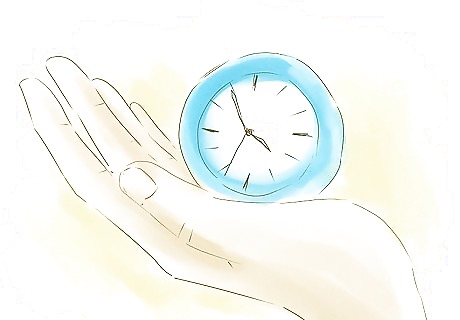
Think about the time commitment. If you're very busy, you may not want an incredibly time-consuming hobby. However, if you have a lot of free time on your hands, a hobby that requires a lot of time may help you stay busy. Things like reading, drawing, or crossword puzzles can be done in small spare moments. You can do these things on your lunch break or after dinner at night. They do not require a lot of time. These may be good if you're already busy. Other hobbies require a great deal of free time. Something like gardening, for example, must be done for a set number of hours each day. If you have a lot of free time to fill, opt for a hobby like this.

Weigh in how social you are. Be honest with yourself about your need for socialization. If you're a more social person by nature, you're unlikely to stick with a solo hobby. If you tend to prefer to spend time alone, a hobby you do with others may not interest you. If you need the motivation of others, joining a sports team or a book club can be an excellent hobby as it forces you to interact with others. If you're a more introverted person, something you do alone, like reading, maybe a better choice. Check out what people are interested in on Instagram, YouTube, or TikTok. There’s nothing wrong with borrowing a hobby from someone else! Reader Poll: We asked 165 wikiHow readers who've found hobbies they love, and only 8% of them agreed that joining a team-based hobby is best. [Take Poll] So if you’re extroverted, go for it! But don’t feel like you have to force yourself if you’d prefer a solo hobby.
Considering Your Tastes and Personality

Think about what excites you. You want to pick a hobby that makes you feel enthusiastic. A hobby is meant to be fun, so don't just do it for other people, do it for yourself. If you don't go into your hobby feeling excited, you're likely to lose interest. Think about things you find fascinating and stimulating when choosing a hobby. Think about skills you have always fantasized about having. Have you occasionally imagined yourself as a talented singer? Teaching yourself to sing in your spare time may be exciting for you. Have you always wanted to impress people with your art? Try taking up drawing or painting. Reviewing your past can help. What subjects did you love in school? What extracurricular activities from high school or college were most thrilling for you? This can offer hints on what kinds of hobbies you may enjoy as an adult.
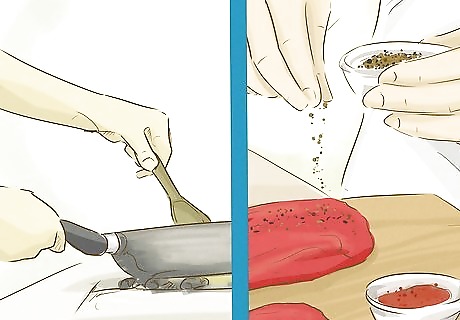
Evaluate your natural skill set. For some people, a hobby should be more relaxing than challenging. Choosing something you're not already good at may result in you feeling stressed and quitting. Think about what skills you already have if you're looking for something low-key. For example, maybe you already enjoy cooking for yourself each night. You're not skilled, but you're a decent cook and have always been up for new recipes. You could take a cooking class. As you already know the foundations of cooking, it'll be easier to get into the swing of things with this new hobby.

Consider whether you want a challenge. Some people get bored developing established skills. If you're the type of person who craves a challenge, you may want to find a hobby that pushes you out of your comfort zone a little. For example, maybe you're slightly sedentary by nature and are a bit resistant to going out. You could try running or hiking, both of which force you to get out and move.
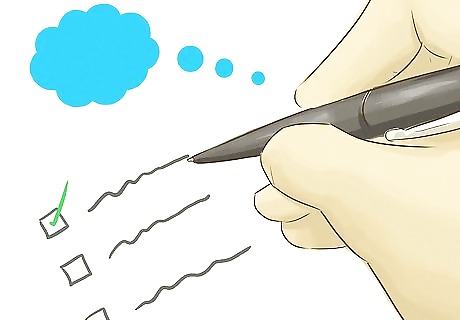
Make a list of things you already like. It's important to choose a hobby that reflects your interests. You're vastly more likely to stick to a hobby that interests you. Make a list of all the interests you can think of. Then, review the list. Think of what kind of hobby may match with your interests. For example, you may write down things like words, books, language, culture, trivia, and so on. A good hobby may be doing crossword puzzles, which will force you to think logically about words and use your trivia knowledge to decipher clues.
Making a Hobby Stick

Find a friend to do the hobby with you. Many people find the buddy system works when starting a hobby. If you and a friend agree to get into a hobby together, you'll both be more likely to stick it out. You will be able to keep one another accountable. Choose a friend with compatible interests. If you have a friend who's into extreme sports, while you tend to like staying in with a book, the two of you will not be a good match hobby-wise. Instead, choose an equally bookish friend. The two of you could try joining a local book club together.

Look for a community. Many people find it's easier to stick to a hobby if there's community support. Try joining a class or club related to your hobby. If you like singing, for example, join a local choir. If you tend to be more solitary, you can look for support online. If you're a knitter, for example, you can post in forums asking for advice and inspiration involving new knitting projects.
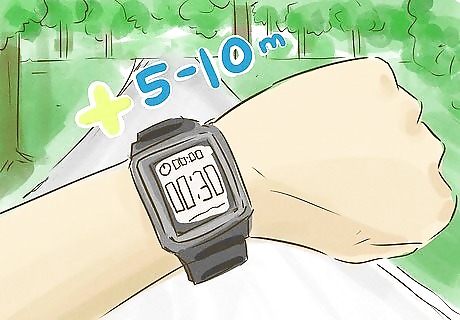
Start small. If you jump into a hobby too quickly, you may grow impatient and quit. Do not think you have to commit all your time and energy to a hobby right away. Start by doing your hobby for a set number of minutes each day. As you get more accustomed to the hobby, increase this number gradually. If you're trying to take up running, for example, try starting with 5 to 10-minute runs and gradually increasing the length as you get more physically fit.

Have some patience when trying something new. If your hobby is something you've never done before, you're unlikely to be good at it right away. Have some patience as it takes time to build up a skill. Try to remind yourself why building this skill set is important to you so you'll have the motivation to keep going.

Do not force yourself to continue a hobby you do not like. You will never know whether you'll take to something if you don't try it. It's okay if you give a hobby a solid shot and decide it's not for you. A hobby is meant to help you de-stress and wind down. If it's doing the opposite, try something else. Remember, the hobby you're most likely to stick with long-term is the one you like. There is absolutely nothing wrong with dropping a hobby that isn’t doing anything for you. You can always pick something new that catches your eye in the future.




















Comments
0 comment